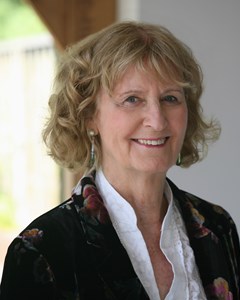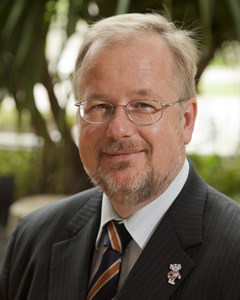
Professor Dame Margaret Whitehead, DBE, PhD, FFPH, FMedSci, FHEA, University of Liverpool
Professor Dame Margaret Whitehead held the W.H. Duncan Chair of Public Health at the University of Liverpool from 1999 to 2023, where she was also founding Head of the World Health Organisation (WHO) Collaborating Centre for Policy Research on the Determinants of Health Equity.
Her passionate interest over the past thirty years has been social inequalities in health and in healthcare. Her work with WHO has helped provide guidance for countries across Europe on making population health policies and strategies more equitable. In 2016, she was honoured with a Damehood for her contribution to public health in the Queen’s New Year Honours List.
As well as contributing to various UK and international efforts to address social inequalities in health, she chaired the Independent Inquiry into Health Equity for the North of England (the Due North Report). She is Chair of the Independent Review of Equity in Medical Devices, set up by the UK Secretary of State for Health, to investigate ethnic and other unfair biases in medical devices used in the NHS and to make recommendations for improvements, the report of which was published in March 2024.

Professor Katia Parodi, Chair of Medical Physics at the Physics Faculty, Ludwig-Maximilian-University
Katia Parodi is since 2012 full professor and Chair of Medical Physics at the Physics Faculty of the Ludwig-Maximilian-University in Munich, where she initiated a specialization curriculum in Medical Physics within the MSc in Physics. She received her Ph.D. in Physics from the University of Dresden, Germany, in 2004, and subsequently pursued postdoctoral research at Massachusetts General Hospital and Harvard Medical School in Boston, USA. In 2006 she returned to Germany as tenured scientist and group leader at the Heidelberg Ion Therapy Center, obtaining in 2009 her Habilitation from the Heidelberg University.
Her research interests are in high-precision image-guided radiotherapy, with focus on advanced methods for delivery, imaging and in-vivo monitoring of pre-clinical and clinical ion therapy. For her work, reported in over 300 publications in peer-reviewed journals, she received several recognitions, including the Behnken Berger Award in 2006, the IEEE Bruce Hasegawa Young Investigator Medical Imaging Science Award in 2009, the AAPM John S. Laughlin Young Scientist in 2015 and an ERC Consolidator grant in 2016. In 2017-2018 she served as president of the German Society for Medical Physics. She is since 2021 the Editor-in-Chief of the journal Physics in Medicine and Biology, and since 2024 an AAPM Fellow.

Professor Wendy Tindale OBE, Scientific Director of Medical Imaging & Medical Physics, Sheffield Teaching Hospitals
Professor Wendy Tindale is a Medical Physicist by background and is Scientific Director of Medical Imaging & Medical Physics at Sheffield Teaching Hospitals. She holds a Chair at the University of Sheffield and has a national role as Director of the National Institute for Health Research (NIHR) ‘Devices for Dignity’ HealthTech Research Centre (HRC) in Long-Term Conditions – a catalyst for development of innovative medical devices, healthcare technologies and technology-dependent interventions. Through this, she has combined clinical academic excellence with business opportunities through commercial translation of innovative medical technologies and has worked with both public and private sectors to facilitate successful collaborations. Focusing on the needs of the individual, through co-production, is at the heart of her collaborations. She now leads the national network of 14 NIHR HRCs across the country.
Wendy has contributed to multiple national and international committees, including Royal College Working Parties and Government advisory bodies. She is Chair of the SBRI Healthcare panel and has worked with NICE, MRC, EPSRC, Innovate UK and NIHR to advise on strategy, medtech funding and national adoption.
Within the NHS, she leads a large Clinical Directorate supporting broad scientific services and innovative practices spanning imaging, clinical engineering and medical physics disciplines.

Professor Thomas ‘Rock’ Mackie
Thomas “Rock” Mackie has a BSc in Physics (1980) from the University of Saskatchewan and a PhD in Physics (1984) from the University of Alberta. He was a Professor of Medical Physics at the University of Wisconsin from 1987 to 2014 with his last role as Director of Medical Engineering at the Morgridge Institute for Research and since is an emeritus professor. He has been awarded the Coolidge Gold Medal from the AAPM (2014), the Gold Medal from ASTRO (2019) and the John Mallard Award for Innovation from the IOMP (2019) and is Fellow of the National Academy of Inventors. He is a commissioner of the International Commission on Radiation Units and Measurements (ICRU) as well as the Vice-Chair of its Board. Rock Mackie has a long entrepreneurial career both as an academic and since retiring as a professor. He is best known for the Pinnacle, a radiation therapy treatment planning system, and TomoTherapy, the first MVCT-guided IMRT company. He is a co-founder of Leo Cancer Care, which is developing upright radiotherapy, OnLume a fluorescent-guided surgery company, and a board member of Shine Medical Technologies which is developing medical isotopes using fusion and fission nuclear reactions.

Fanny Burrows
Fanny is the Research & Innovation Lead in the Greener NHS Programme at NHS England. Her main responsibility is to ensure net zero is integrated in all research & innovation activities and engaging with research and innovation partners to advance the net zero agenda. Some key areas of focus are to stimulate a new market of greener innovations, create and strengthen research collaborations across industry, academia and the NHS and establishing mechanism by which research and innovation can address the gaps and needs to achieve the NHS net zero targets.
Before NHS England, she spent some years working on some government-funded research and innovation programmes, and particularly leading on the delivery and strategic development of the Small Business Research Initiative (SBRI) Healthcare programme, including net zero specific initiatives.
Prior to working in the public sector, Fanny spent over 10 years working in the Medtech Industry in Research & Development, developing and translating medical technologies globally.